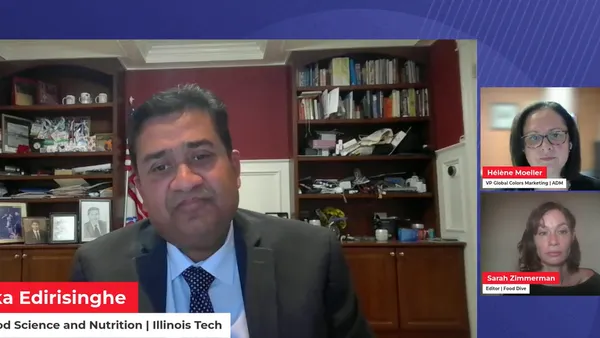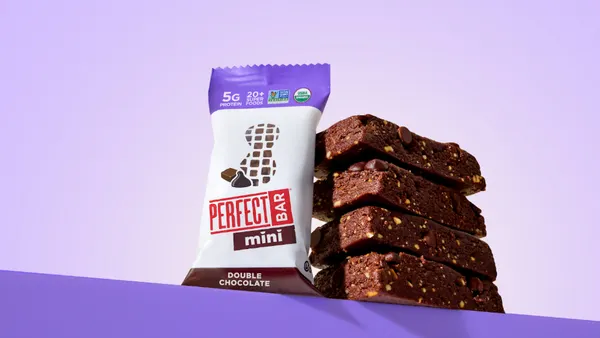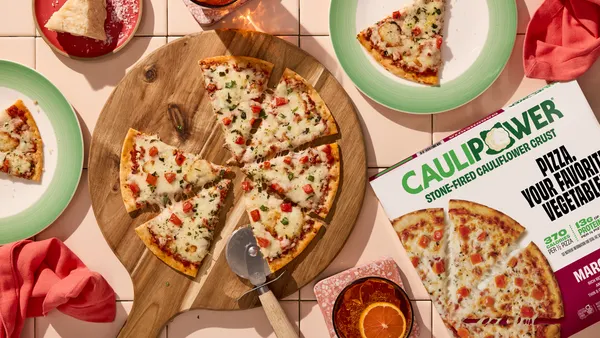Dive Brief:
-
Carolina Innovative Food Ingredients (CIFI) has developed a natural sweetener from sweet potato for use in sauces, baked goods and beverages, according to a company release.
-
Sold under the Carolina Sweet brand name, it is intended as a clean label replacement for other caloric sweeteners, such as high fructose corn syrup or honey. It is naturally viscous, meaning it can also replace or reduce the use of thickeners like xanthan gum or modified corn starch.
-
The company is also touting its mineral content, as it is higher in calcium, potassium, iron and magnesium than alternative sweeteners. In the release, CIFI Chief Operating Officer John Kimber said, “Carolina Sweet embraces the health halo surrounding the sweet potato, offering nutritional benefits that consumers might not even know sweeteners can offer.”
Dive Insight:
CIFI offers a range of sweet potato juices for use in different products, including some that retain more nutrients, one that has a texture close to that of a traditional sugar syrup, and a clarified juice that could be useful in products like a clear beverage. The sweet potato ingredient could also be blended with other fruits and vegetables to reduce added sugar in juices, while allowing manufacturers to maintain a 100% juice claim. Its viscosity could make it particularly interesting for adding texture as well as sweetness to dressings, sauces and marinades.
The Carolina Sweet sweetener comes as a 75 brix syrup, meaning it contains 75% sugars — comparable to invert sugar syrup or high fructose corn syrup.
As a vegetable-derived sweetener, it fits in well with the current trend toward natural, clean label ingredients. It's also non-GMO, non-allergenic, gluten-free and Kosher certified. These free-from credentials have become increasingly important to consumers. According to The Hartman Group, artificial sweeteners and high fructose corn syrup top the list of ingredients that food manufacturers try to eliminate when they clean up their product labels.
However, the company has not released details of the ingredient’s cost, which is likely to be much higher than that of high fructose corn syrup, one of the cheapest available sweeteners in the United States.












